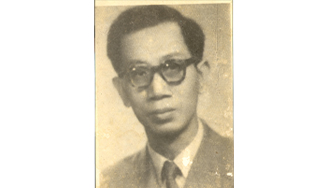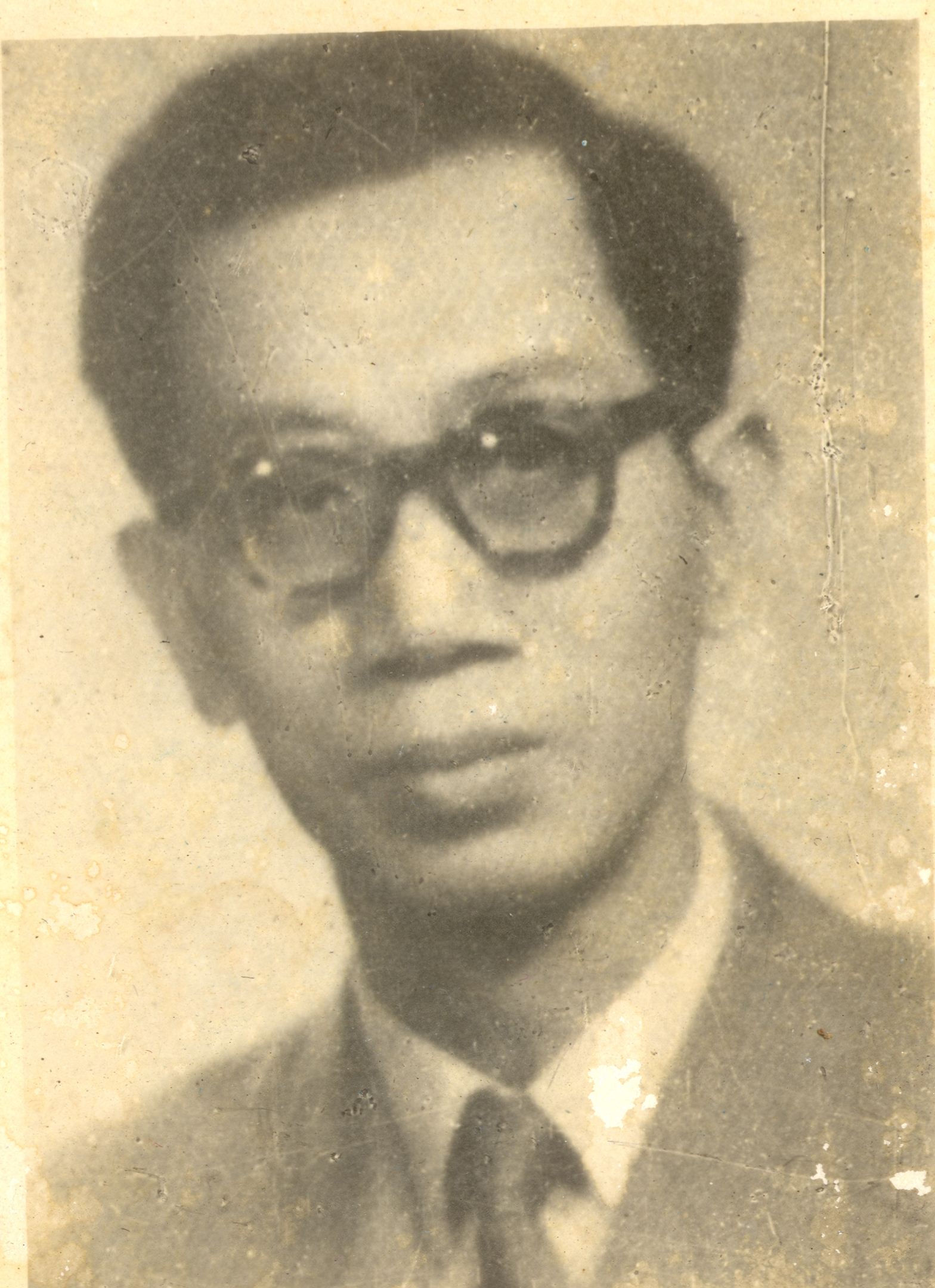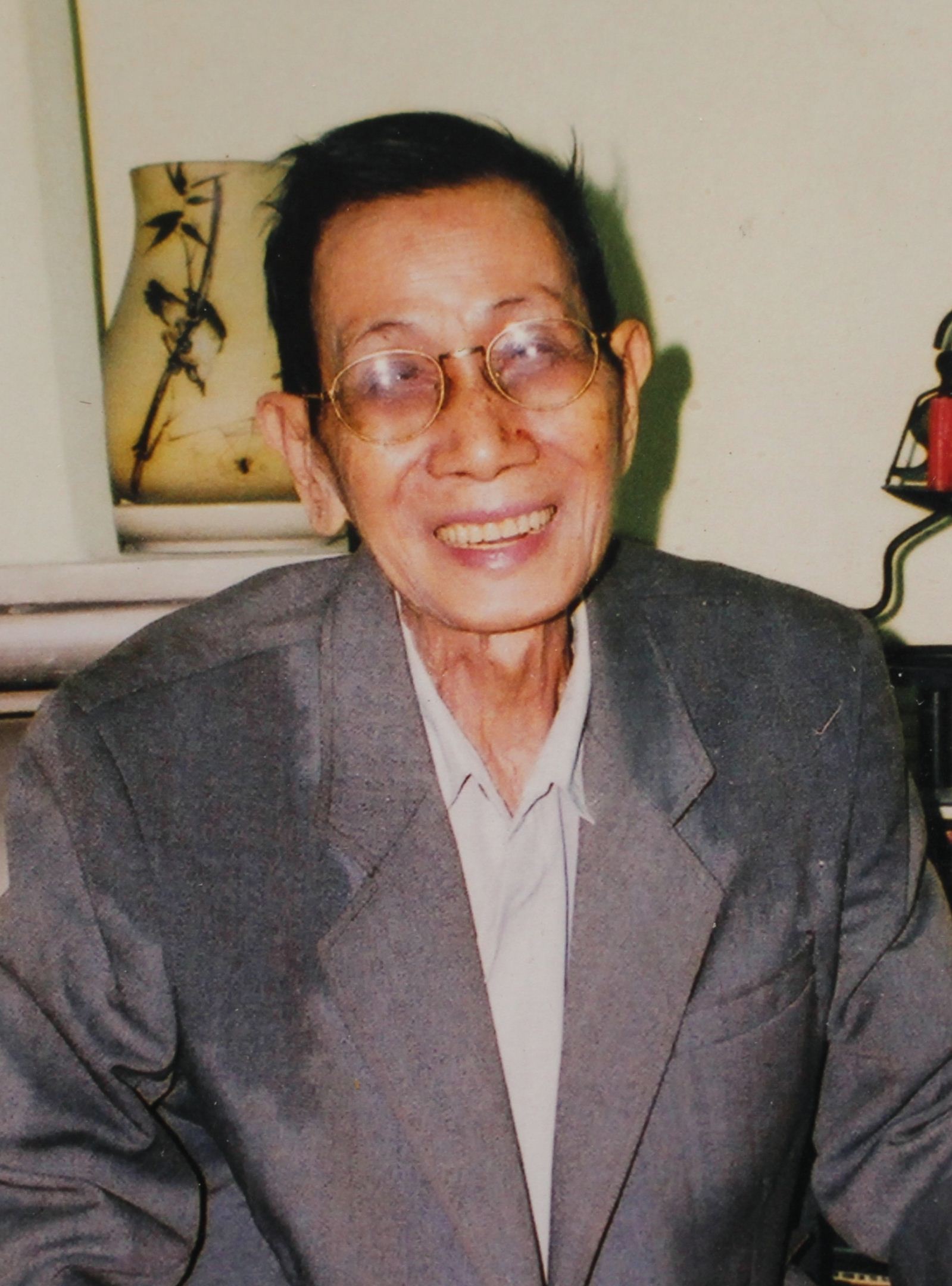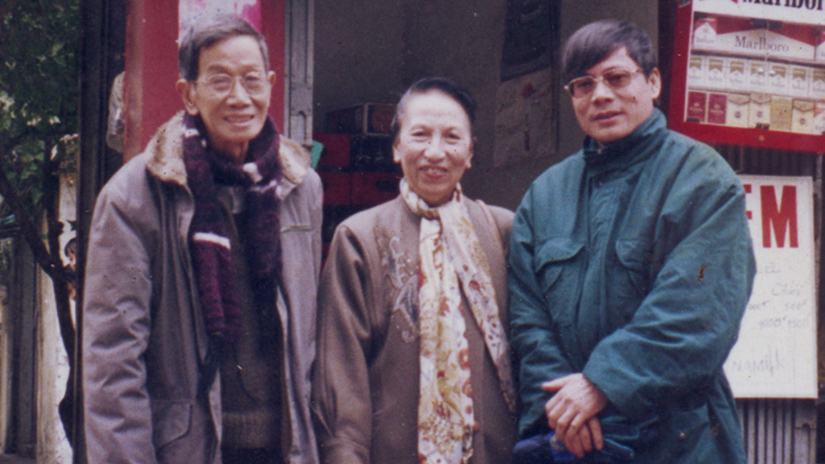
1.Professor Do Duc Hieu has been gone for more than 10 years. He passed away in the spring of 2003, March 27th (at the hour of Dau on February 25th, Quy Mui year). My memories of him are still the same as the days when I went in and out of his narrow attic at 26 Hang Bai. At that time, I was still living in the central street. Every week, I visited him once or twice. Many days, there were only the two of us sitting and talking all day about literature, life, work, family, and children. His family was not very happy. The daughter he seemed to love the most had settled down with her husband and children in Poland, a son in Russia, but his business was also declining, not going smoothly, and his family, wife and children were not warm; there was one brother at home, father and son did not get along. I visited often, but I hardly ever saw him and his wife sitting and talking to each other. His wife was a retired teacher at Trung Vuong School next door. From the time I met him in the early 80s, when I first came to the School, until his death, which was 23 years or so, I always saw him sad, gloomy, lonely, and cynical even in his rare moments of laughter. He covered his mouth, his voice was hoarse, as if he wanted to hide something. I don’t know much about his life before the 80s, but there must have been beliefs and failures. Read again the article “A few words of confidence (Talking with Mr. Nguyen Trung Duc)” at the end of the bookInnovation in reading and commentaryof you, i have somewhat understood you.

Professor, Meritorious Teacher Do Duc Hieu (1924-2003)
2.He was only happy and enthusiastic when talking about literature, research, and writing. As a lover of literary beauty, he was passionate and immersed in it. He was very careful in his research. Before each article he planned to write, he always read, took notes, and wrote a careful outline, until it was printed, which often took several months to complete. He worked with words all his life, but I think the 80s and 90s were the years he reaped the most success. In an article commemorating his 75th birthday, I had some summaries.
During these years he was the chief editor of the department.Literary dictionary(two volumes), published in 1983 and 1984, in 2004, one year after his death, reprinted and supplemented into a new set, printed by the World Publishing House. In two volumesLiterary dictionaryHe has contributed to 67 entries of various types: trends, movements, terms, writers, philosophers and their works -Existentialism, Naturalism, New Novel, New Realism, Baroque, Descartes, Corneille, Racine, Molière, Béranger, Baudelaire, Rimbaud, Verlaine, Proust, Apollinaire,... most of the peaks of French literature and thought over three centuries. Not to mention the Bulgarian, German, Belgian, and American writers and works that he also wrote here. Each entry is a mountain of effort: collecting documents, reading authors, works, eras, history, society,... Selecting, arranging, compiling, etc. Continuously reading his entries will give you a clear picture of the literary situation, history, writers, and philosophers in those centuries. That work requires persistent, honest work and a great love for literature and beauty.

3.He usually went to bed early, turning off the lights around 8 or 9 pm (he reminded me: “Don’t come or call me after that time”); around 1 or 2 am he woke up to make tea, smoke and work until noon the next day. In the last years of his life, he often ordered food from the street (called “street food”) to eat. I remember, once Mr. Phan Quy Bich had some money to invite the whole Western Literature group to eat at a Western restaurant near the Opera House. The food was delicious and luxurious. When he returned, when he got to the street, he leisurely said in a high-pitched voice: “Not as delicious as street food”. The whole group laughed out loud. Later, Mrs. Dang Thi Hanh kept laughing and recalling this memory. With only 2/3 of his stomach left, he couldn’t eat much, of course, but he also didn’t enjoy eating. For him, eating was a duty enough to “recharge” the minimum energy for a skinny body to survive the day. Anorexia and boredom with life sometimes flashed through his distant gaze out the window. The story suddenly stopped for a few seconds.
4.Returning to his writing career, he is also the editor-in-chief with colleagues of 10 volumes of Textbooks.History of French literaturefrom the Middle Ages to the present day.Innovation in literary criticismHis book, printed in Social Sciences Publishing House - Mui Ca Mau Publishing House, 1993, reprinted shortly after its release; followed by the bookInnovation in literary criticism,Writers Association Publishing House, 1999; thenModern poetics,Publishing House of the Writers Association, 2000. His literary "adventure" was endless, until one day he applied literary theory to return to Vietnamese literature with "The world of Ho Xuan Huong's poetry"; "The paths of departure of Thuy Kieu"; then he "went to the Huong Pagoda festival with Nguyen Nhuoc Phap"; listened to "Autumn sounds, poetry and music of Luu Trong Lu"; andLucky Number, Living in a Wasteland, District Street, Tragedy of Vu Nhu To... those articles about Vietnamese literature had a resonance. Returning to the East Coast, he returned to his old schoolboy childhood with "The time when heaven and earth were in a dust storm", "Lam Truy from the time when the mandarin ducks flew", "The country and mountains are heavy with a vow"... Many former students working in television wanted to film him to make a documentary, but he snapped (rarely seen him so resolute): "I won't film. Don't bring your camera!" Perhaps he understood the meaninglessness of the echo.

Late Professor Do Duc Hieu, People's Teacher Le Hong Sam, Mr. Tran Hinh - lecturer of the Faculty of Literature
5.The last years of his life were quite sad. His wife, Tam, passed away a few years before him. His children each went their separate ways to start a business. Some lived far away. No one followed their father's career. After he passed away for a while, the small house was transferred to someone else. 2016 was also the 60th anniversary of the Faculty of Literature of the University of General Sciences, of which he was one of the predecessors in building and developing it. This article, from a few memories with the Teacher, is considered as a stick of incense to remember him. Perhaps due to objective and subjective limitations that made him sad, but above all and first of all, he was still an honest person in the way of living and working scientifically. Learning from him, I learned those things.
|
PROFESSOR, MERIT EDUCATOR DO DUC HIEU
+ Working unit: Faculty of Literature (Hanoi University of Science).
Tran Te Xuong's Literature and Poetry (co-written with Hoang Ngoc Phach and Le Thuoc), published by the Ministry of Education, Hanoi, 1957. Anthology of Vietnamese poetry and literatureVolume 3 (From the 18th century to the mid-19th century), Literature Publishing House, Hanoi, 1963. History of Western Literature (co-authored), University & Vocational High School Publishing House, Hanoi, 1963. Literature of the Paris Commune, Literature Publishing House, Hanoi, 1978. Criticism of existentialist literatureLiterature Publishing House, Hanoi, 1978. Literary dictionary, Editor-in-Chief, 2 volumes, Literature Publishing House, Hanoi, 1983 History of French literature, 5 volumes, co-editor, The Gioi Publishing House, Hanoi, 1992-1994 Innovation in literary criticism, Social Sciences Publishing House & Mui Ca Mau Publishing House, 1994. Literary allusions(co-written with Mai Thuc), Education Publishing House, Hanoi, 1996. Innovation in Reading and Commentary, Writers Association Publishing House, Hanoi, 1999. Modern poetics,Selected and introduced by Do Lai Thuy, Writers Association Publishing House, Hanoi, 2000. Modern poetics-Some theoretical and applied issues, selected and introduced by Tran Hinh, Education Publishing House, 2013. |
Author:Associate Professor, Dr. Dao Duy Hiep
Newer news
Older news